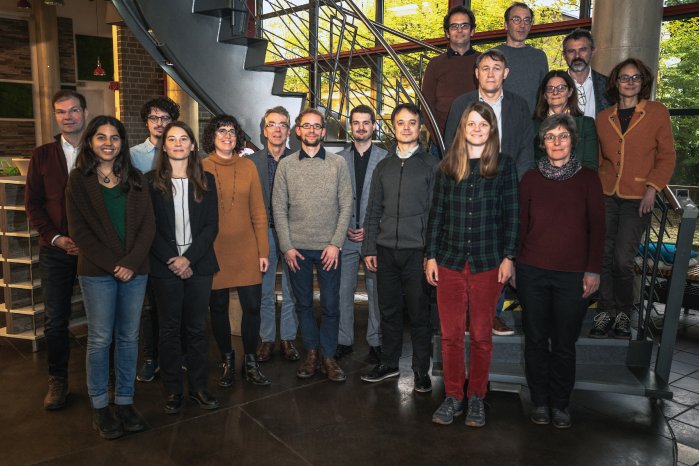The SafeCREW research project will kick off with a meeting in Hamburg on 1 and 2 December 2022. Together with ten partners from Germany, Italy, Spain, the Netherlands and the UK, the DVGW Research Centre at the Hamburg University of Technology (DVGW-TUHH) will conduct research on the conditions for climate-resilient water supply and develop guidelines for action for water suppliers, policy-makers and regulatory authorities.
Climate change poses major challenges for the drinking water supply in Europe. With rising water temperatures and increasing heavy rainfall events, higher amounts of organic substances and microorganisms will also be present in raw water. Well-established processes that have so far guaranteed high drinking water quality will have to be changed and adapted. In southern Europe, disinfection of drinking water is already necessary today. It is possible that even northern European water suppliers will have to use disinfection in the future. One focus will be the investigation of previously unknown disinfection by-products and the further characterisation of already known ones and their formation. With the results, the participating companies intend to develop commercially available methods of quantifying and reducing these by-products so that negative effects on human health can be prevented.
The SafeCREW consortium of research institutes, European water suppliers, small and medium companies and the German Environment Agency (UBA) will use three case studies in northern Germany, Italy and Spain to drive the further characterisation of water quality, and develop new water treatment methods and better management of water distribution networks to maintain high drinking water quality. This will include all processes from source via treatment and up to distribution.
SafeCREW is funded by the European Union and targets stakeholders in the water sector: Water suppliers will receive support for integrated risk management, regulatory authorities will be able to use the data generated in SafeCREW to inform the approval of safe materials in the distribution networks, and last but not least, the research will ensure the further development and implementation of the EU Drinking Water Directive.
Further information on the project can be found at https://www.tuhh.de/wwv/en/dvgw-tuhh/dvgw-research-centre-tuhh.html and https://cordis.europa.eu/project/id/101081980
Project partners in the SafeCREW consortium
DVGW Research Centre TUHH (Coordinator, Germany), German Environmental Agency (Germany), Helmholtz Centre for Environmental Research GmbH – UFZ (Germany), KWB Kompetenzzentrum Wasser Berlin gGmbH (Germany), Tutech Innovation GmbH (Germany), Metropolitana Milanese SPA (Italy), Politecnio di Milano (Italy), Consorci Concessionari d’Aigues per als Ajuntaments i Industrie de Tarragona (Spain), Fundacio EURECAT (Spain), BioDetection Systems B. V. (Netherlands), Multisensor Systems Limited (United Kingdom)
Horizon Europe
Horizon Europe is the EU’s key funding programme for research and innovation with a budget of €95.5 billion. It tackles climate change, helps to achieve the UN’s Sustainable Development Goals and boosts the EU’s competitiveness and growth. The programme facilitates collaboration and strengthens the impact of research and innovation in developing, supporting and implementing EU policies while tackling global challenges. It supports creating and better dispersing of excellent knowledge and technologies.
The DVGW Research Centre TUHH
The DVGW (German Technical and Scientific Association for Gas and Water) Research Centre at the Hamburg University of Technology (TUHH) is one of four water research institutions run by the DVGW. It is affiliated with the University’s Institute of Water Resources and Water Supply. The research conducted at the DVGW Research Centre is linked to current practice. The centre provides advice to water companies and industrial corporations. Its research areas range from water collection to water treatment and distribution. They include, among others, the optimisation of water treatment processes, hygiene issues concerning water distribution, and energy efficiency. A key area of its work is the North German water supply with its special characteristics.


